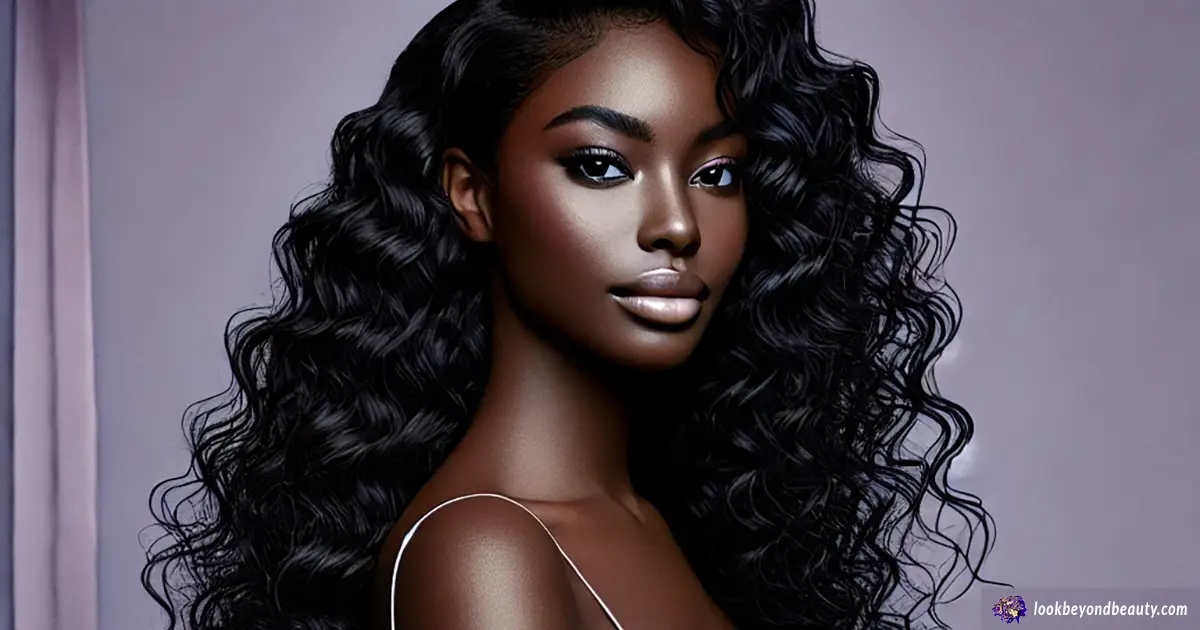What is Your Hair Telling You? Hidden Signs of Nutrient Deficiencies

Your hair is more than just a style statement; it is also a reflection of your overall health. Changes in hair texture, thickness, and growth patterns can often signal underlying signs of hair nutrient deficiencies. Understanding these signs can help you take proactive steps to restore your hair’s vitality and improve your well-being.
Signs of Hair Nutrient Deficiencies
Signs of hair nutrient deficiencies can include excessive shedding, slow hair growth, brittle or dry hair, changes in hair texture, and even hair loss or thinning. Other symptoms can include brittle nails, dry skin, and fatigue.
Here’s a more detailed look at common signs and potential underlying deficiencies:
1. Dry and Brittle Hair
If your hair is excessively dry, brittle, or prone to breakage, it may indicate a lack of essential fatty acids, vitamin A, or vitamin E. These nutrients are crucial for maintaining moisture and strength in the hair shaft. Including foods like nuts, seeds, avocados, and fish in your diet can help replenish these vital nutrients.
2. Excessive Hair Shedding
While it’s normal to shed some hair daily, excessive hair loss may be a sign of iron or protein deficiency. Iron is essential for oxygen transport to hair follicles, and inadequate levels can lead to hair thinning. Similarly, insufficient protein intake can weaken hair strands, causing increased shedding. Foods rich in iron, such as spinach, lentils, and lean meats, along with protein sources like eggs and dairy, can support healthy hair growth.
3. Thinning Hair
A lack of B vitamins, particularly biotin (B7) and folate (B9), can result in thinning hair. These vitamins play a key role in keratin production, the primary protein in hair. Whole grains, leafy greens, eggs, and legumes are excellent sources of B vitamins that promote thicker and stronger hair.
4. Premature Graying
This is one of the top signs of hair nutrient deficiencies and people often wonder why they’re graying in the early 30s. While gray hair is a natural part of aging, premature graying can indicate a deficiency in vitamin B12, copper, or antioxidants. B12 helps in red blood cell production, which nourishes hair follicles, while copper contributes to melanin production, the pigment responsible for hair color. Including foods like shellfish, dairy, and nuts in your diet may help slow premature graying.
5. Slow Hair Growth
If your hair growth has noticeably slowed down, it could be due to a deficiency in zinc or vitamin D. Zinc plays a vital role in tissue growth and repair, while vitamin D helps stimulate hair follicles. Foods like pumpkin seeds, oysters, salmon, and fortified dairy products can help boost these nutrient levels.
6. Scalp Issues (Dandruff or Itchiness)
A flaky or itchy scalp can be linked to low levels of omega-3 fatty acids, vitamin B6, or zinc. These nutrients help maintain scalp health and regulate oil production. Consuming foods such as fatty fish, bananas, and sunflower seeds can improve scalp conditions and reduce dandruff.
How to Maintain Healthy Hair Through Nutrition
Maintaining a balanced diet rich in vitamins, minerals, and healthy fats is key to preventing hair nutrient deficiencies. Consider incorporating the following:
- Protein: Found in lean meats, eggs, and plant-based sources like lentils.
- Iron: Present in red meat, spinach, and fortified cereals.
- Omega-3s: Abundant in salmon, walnuts, and flaxseeds.
- B Vitamins: Available in whole grains, eggs, and dairy.
- Vitamin D: Found in sunlight exposure, dairy, and fatty fish.
Final Thoughts
Noticeable hair and scalp issues can serve as early warning signs of hair nutrient deficiencies. If you notice persistent changes in your hair’s texture, growth, or color, it may be time to evaluate your diet and lifestyle. A well-balanced diet, combined with proper hair care, can help you achieve strong, healthy, and vibrant hair. If problems persist, consulting a trichologist can help identify underlying deficiencies and recommend targeted solutions.
To Good Health,
Marcey, Certified Health Coach & Trichologist
DISCLAIMER: The content in this blog is for informational purposes only. And not intended to diagnose, treat, cure, or prevent any medical condition or replace your healthcare professional’s advice and guidance. If you suspect a medical condition, please seek medical attention immediately.





